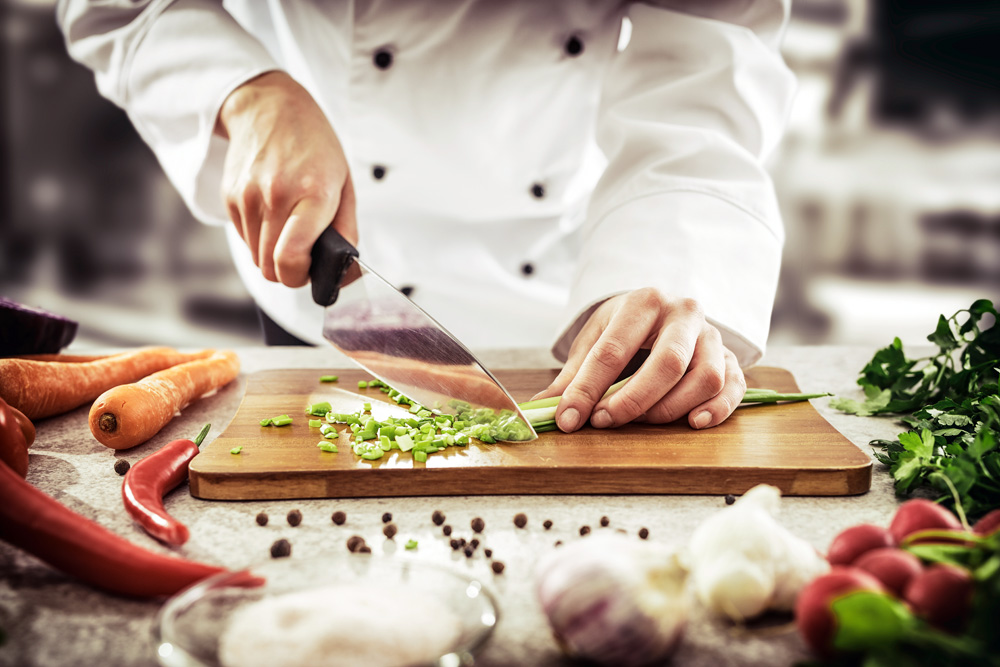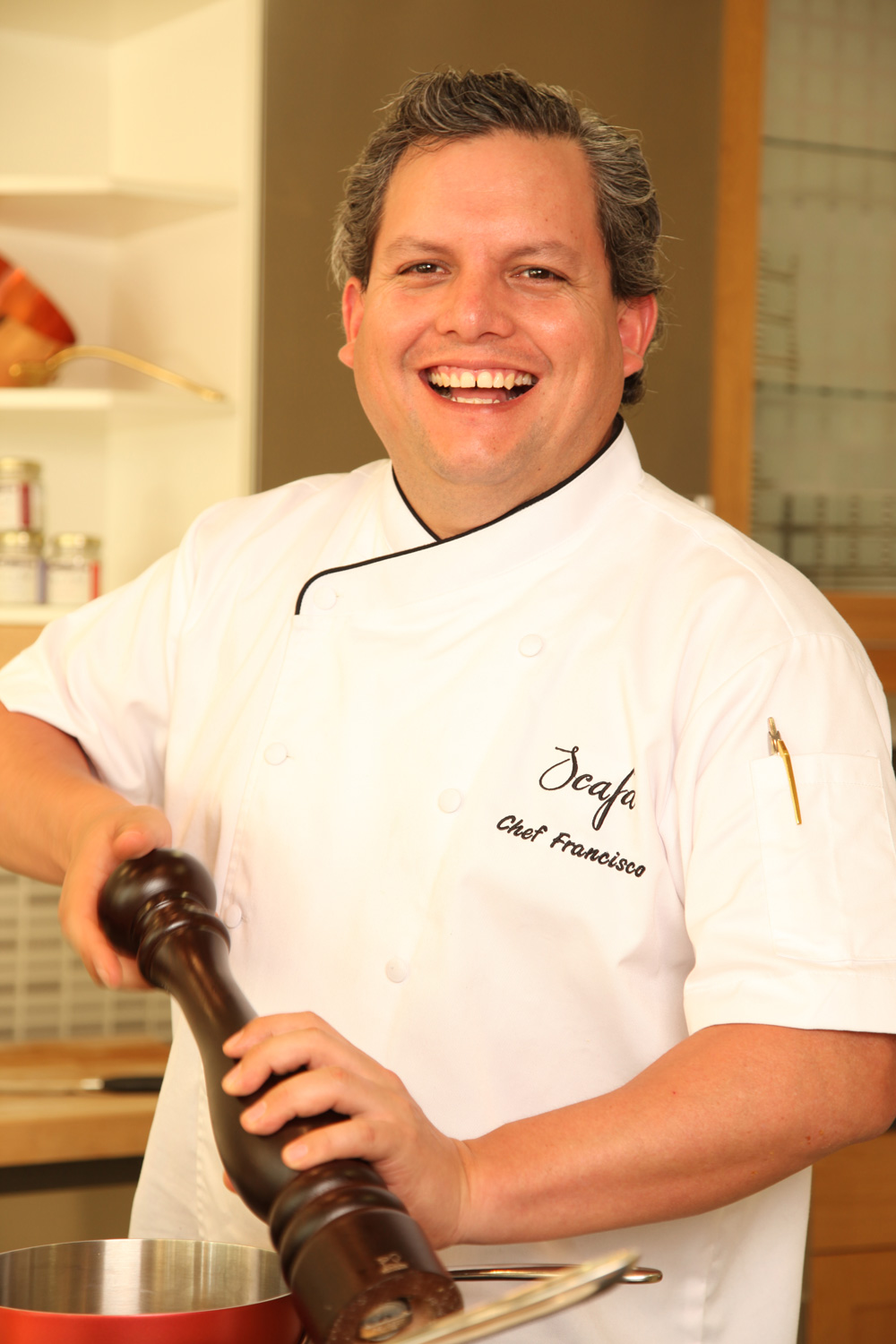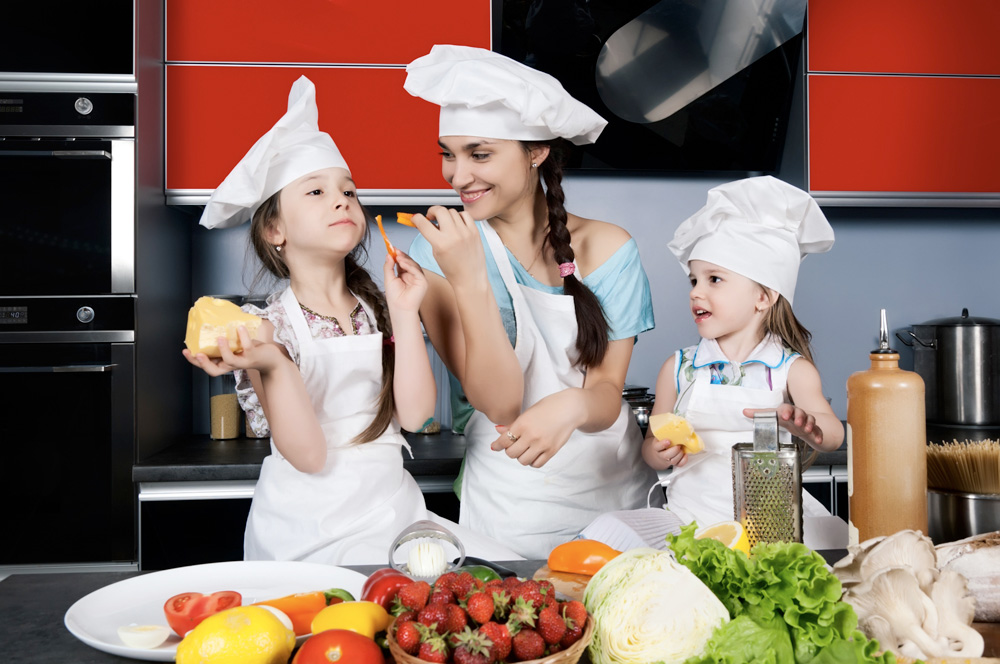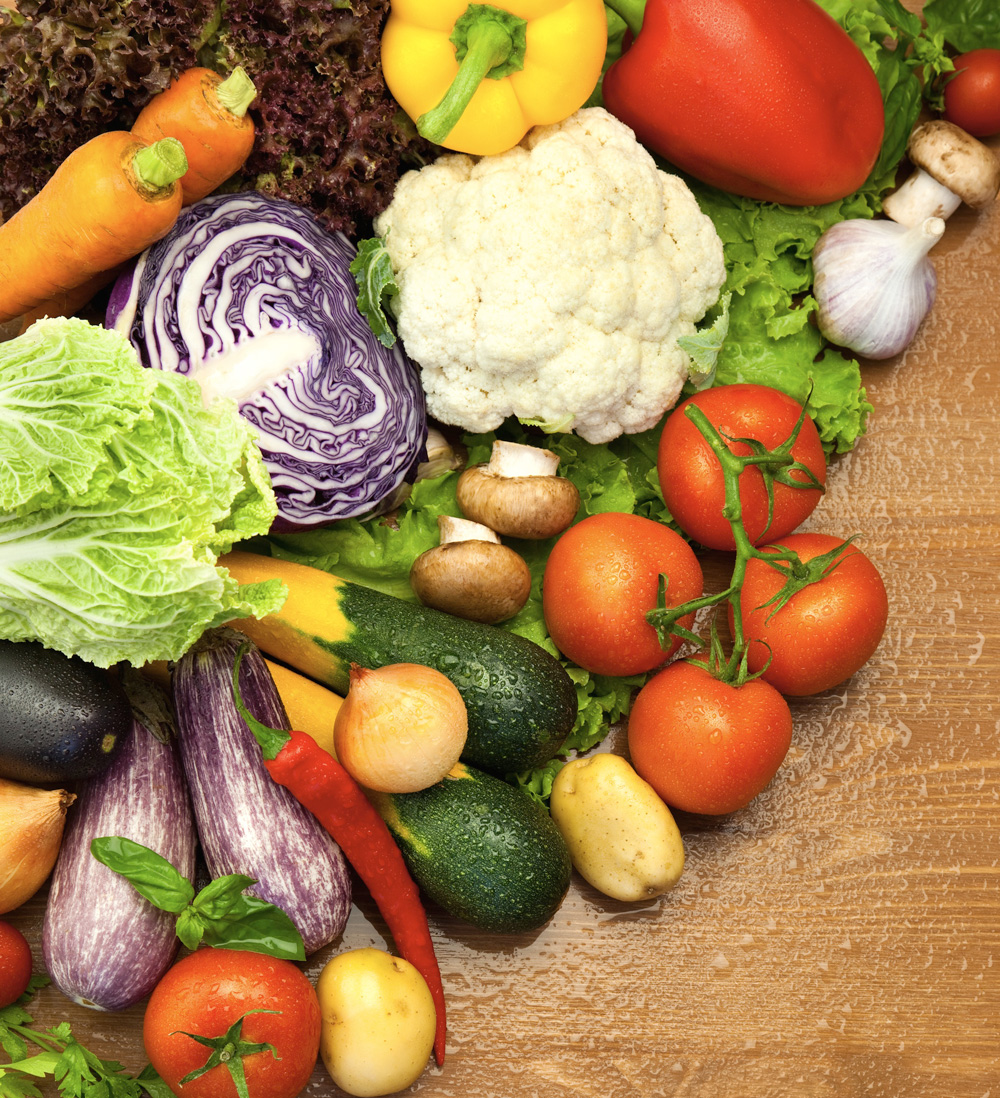
Chef Francisco Araya has a colourful career featuring international hospitality expertise and vocational education, including a period spent as Director of the Culinary Arts programme at IP Duoc UC Valparaiso and a Leadership Diploma from Universidad Adolfo Ibanez. The Honduras-born School Director at the School of Culinary and Finishing Arts (SCAFA) in JLT, Dubai answers our questions about healthy cooking with his characteristic unstinting passion.
How would you sum up healthy cooking in general? Can you tell us the most important things to keep in mind for a long-term healthy eating plan?
In my opinion, I would sum up healthy cooking with the following points: being able to use the freshest and best quality produce available; using the right fat for each cooking method and applying the right cooking method for every ingredient.
To keep a long-term healthy eating plan, you need to have a balanced diet based on vegetables and fruit, including ingredients from every food family. You should also try to avoid refined ingredients like white sugar and flour and try substituting them with unrefined ingredients.

Chef Francisco Araya
How can we cut down the amount of fat we use while preparing meals?
People are used to frying everything, exposing their bodies to burnt oil and overcooked food. The best way to reduce the amount of fat is to cook your food using different appliances and methods. For example, instead of pan-frying a salmon, just pan sear it in the stove for 45 seconds, remove the oil from the pan and bake it in the oven. By doing this you are able to develop the flavour derived from the ‘Maillard reaction’ and cook it fat free in the oven. You may also choose cooking methods such as poaching and steaming where fat is not required or try to cook in fat at a low temperature, like poaching in olive oil where all the great characteristics of oil are not affected by heat.
What’s the healthiest oil to use while cooking? Can you explain why?
Mainly all oils are healthy for cooking. The types of oil you need to choose depends on how much heat you are going to expose it to. All oils have a different smoke point (point refers to when the oil starts to break down, losing flavour and nutritional benefits). For example, if you are going to fry food, choose avocado oil, coconut oil or ghee, which has a high smoke point, or olive oil if you are planning to sauté some veggies for a short period of time.

What kinds of herbs, spices or sauces can we use to make low fat, healthy meals more flavorsome?
You can use any herb or spice to make food flavoursome. In supermarkets you should be able to get a nice selection of fresh herbs to boost flavours in your kitchen. You can even grow your own herbs, as they don’t need much space to grow. If you want to add a kick to your desserts and replace sugar, go for herbs such as lavender and chamomile and mix with stevia or honey. For savoury dishes, add rosemary, thyme or oregano for a Mediterranean flare. Fresh ginger, chillies, lemongrass and lime leaves are great for an Asian kick; lemongrass and lime leaves can even be kept frozen. For sauces, forget white sauces (butter, milk and flour) or cream. I would suggest low fat dairy thickened with cornstarch and flavoured with spices or herbs.
How healthy is grilling as a cooking method? Does it increase cancer risks?
Grilling is a great method for cooking with small amounts or no fat at all, but exposing protein on high heat produces HCA, which can damage our DNA genes and produce cancer. So, for safe grilling, turn the gas down or wait for charcoal to become low-burning embers. Also, raising the grill from the heat source will reduce black char from forming on the protein source. I recommend slow cooking, not only when grilling, to reduce HCA formation.
How can we make eating fruits and vegetables more appealing to family members?
For veggies, add spices and roast in the oven, you can also add a bit of brown sugar onto the veggies to enhance their flavour. For fruits, cut them and drizzle them with orange juice or just blend them into smoothies or milkshakes for everybody to enjoy.
Many people believe healthy cooking takes up a lot of time and effort. How would you answer them?
Of course, it is going to take more time and effort than calling for a take-away meal, but healthy cooking doesn’t take a lot of time. Cooking fish, lean meat or veggies takes at the most 20 minutes if you buy them in portion sizes. It is important to understand that we take time for work, sports, leisure and so forth, but we don’t take time to cook what gives us all the energy and determines our health and life span. There is nothing that represents what you are better than the food you eat.

Do you have any time saving titbits?
The best tip for achieving healthy cooking is getting the right appliances and this does not necessarily mean the expensive ones. To make your life easier, you should get an electric steamer and a slow cooker. They will help you save time and the cleaning will also be easier. If you are getting a steamer you can cook veggies, protein and starch at the same time. If you get a slow cooker, you can programme it to cook for you when you are at work and your meal will be ready for you when you get home.
Let us in on some savvy shopping tricks that can help us choose the best produce. For example, what should we examine when choosing meat, poultry or fish?
The best tip is to buy fresh and try to buy as much as possible from local producers (veggies lose water and nutrients as time goes by). For poultry, try to buy the whole chicken and ask your butcher to clean it for you. For fish, always buy from the best supplier available (never buy a fish with the guts still in), check how it smells (it should smell of the sea), eyes should be clear and firm, the flesh should be firm and the scales shouldn’t come off. For meat, try to buy vacuum-sealed meat (remove from the bag one hour prior to cooking) or big pieces because the higher the percentage of area in contact with oxygen the faster the meat is going to deteriorate.
Last but not least, how can we make cooking more fun?
Cooking is fun when everybody takes part, so invite your spouse and children (start with breakfast on weekends). Also take cooking classes such as those offered at SCAFA in JLT. Cooking classes will improve your skills and teach you different cuisines from across the globe, you will be able to prepare new dishes and flavours that will surprise all your family. What’s more, a study from the BBC stated that people who attend short cooking classes have a healthier lifestyle in the future.
















